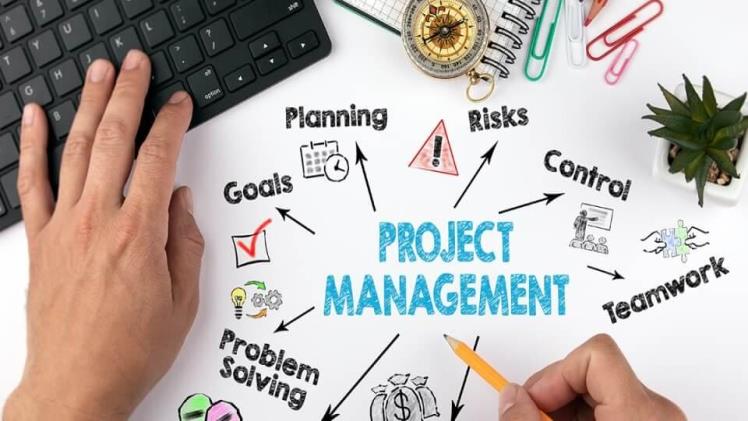Embarking on the journey to becoming a successful project manager is no easy task. With the increasing demand for skilled project managers in today’s fast-paced business environment, it’s crucial to equip oneself with the right tools and knowledge to excel in managing projects of various sizes and complexities. In this blog post, we will explore four essential skills that every project manager should possess to ensure effective and efficient project delivery. By mastering these skills, you will demonstrate your commitment to professional development and increase your value to your organization.
Four skills for project managers
1. Communication Skills
Effective communication is key to successful project management. As a project manager, you will work with diverse teams encompassing various functions, such as marketing, finance, operations, and IT. Being able to convey key messages and project updates clearly and concisely to all stakeholders is essential. Additionally, active listening will ensure that you fully understand the needs and concerns of your team members, ensuring a smoother project execution. Employing a mix of communication channels and catering to team members’ individual communication styles will also help you avoid potential misunderstandings and positively engage everyone.
2. Time Management Skills
Managing time efficiently is a critical skill for any project manager. It is your responsibility to ensure that tasks are allocated in the most optimal way possible and that deadlines are met. Furthermore, knowing how to prioritize and set realistic expectations are key to maintaining a smooth workflow. Developing an organized work structure, utilizing project management software, and staying flexible in adapting to unexpected changes can make a massive impact on the success of your project. As a project manager, mastering the art of multitasking and delegation will help you manage time wisely and successfully deliver projects on schedule.
3. Risk Management Skills
Risk management is a fundamental part of project management. Identifying, analyzing, and mitigating potential risks are crucial steps in ensuring project success. A competent project manager will learn to anticipate the different types of risks that can impact a project, such as financial, operational, and environmental risks. The ability to analyze and prioritize these risks is an essential step in implementing the most suitable risk mitigation strategies. In addition, regularly monitoring and adjusting risk management plans ensures that the project stays on track even when faced with unexpected challenges.
4. Leadership Skills
Being a strong leader is an integral part of being a successful project manager. Inspiring your team, building trust, and fostering collaboration is essential to driving a project toward its goals. Understanding each team member’s strengths and weaknesses and assigning tasks according to their abilities can result in more efficient and satisfied teams. Additionally, being able to resolve conflicts and encourage continuous improvement will create an environment conducive to innovation and creativity. Empathetic and decisive leadership helps instill a sense of purpose and maintain motivation throughout the project’s duration.
To further support your team’s success, you can use the Easeus screen recorder to provide visual demonstrations and clear instructions for complex tasks, ensuring everyone is on the same page.
Conclusion
In conclusion, the role of a project manager goes beyond just putting plans into action. To become a truly successful project manager, it is crucial to possess strong communication, time management, risk management, and leadership skills. By mastering these essential skills, you will improve your ability to deliver successful projects effectively and efficiently. As an aspiring project manager or a seasoned professional, focusing on continuous learning and improvement in these areas will help you increase your value to any organization and build a successful career in project management.

